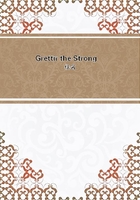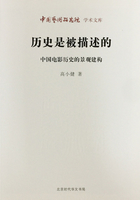And perhaps I may as well explain here the manner in which this can be done, although by doing so I am departing from the order in which the Constitution is written. It is not final, and amendments have been made to it. But the making of such amendments is an operation so ponderous and troublesome that the difficulty attached to any such change envelops the Constitution with many of the troubles of finality. With us there is nothing beyond an act of Parliament. An act of Parliament with us cannot be unconstitutional. But no such power has been confided to Congress, or to Congress and the President together. No amendment of the Constitution can be made without the sanction of the State legislatures. Congress may propose any amendments, as to the expediency of which two-thirds of both Houses shall be agreed; but before such amendments can be accepted they must be ratified by the legislatures of three-fourths of the States, or by conventions in three-fourths of the States, "as the one or the other mode of ratification may be proposed by Congress." Or Congress, instead of proposing the amendments, may, on an application from the legislatures of two-thirds of the different States, call a convention for the proposing of them. In which latter case the ratification by the different States must be made after the same fashion as that required in the former case. Ido not know that I have succeeded in making clearly intelligible the circumstances under which the Constitution can be amended; but Ithink I may have succeeded in explaining that those circumstances are difficult and tedious. In a matter of taxation why should States agree to an alteration proposed with the very object of increasing their proportion of the national burden? But unless such States will agree--unless Rhode Island, Massachusetts, and New York will consent to put their own necks into the yoke--direct taxation cannot be levied on them in a manner available for national purposes. I do believe that Rhode Island and Massachusetts at present possess a patriotism sufficient for such an act. But the mode of doing the work will create disagreement, or at any rate, tedious delay and difficulty. How shall the Constitution be constitutionally amended while one-third of the States are in revolt?
In the eighth section of its first article the Constitution gives a list of the duties which Congress shall perform--of things, in short, which it shall do or shall have power to do: To raise taxes;to regulate commerce and the naturalization of citizens; to coin money, and protect it when coined; to establish postal communication; to make laws for defense of patents and copyrights;to constitute national courts of law inferior to the Supreme Court;to punish piracies; to declare war; to raise, pay for, and govern armies, navies, and militia; and to exercise exclusive legislation in a certain district which shall contain the seat of government of the United States, and which is therefore to be regarded as belonging to the nation at large, and not to any particular State.
This district is now called the District of Columbia. It is situated on the Potomac, and contains the City of Washington.
Then the ninth section of the same article declares what Congress shall not do. Certain immigration shall not be prohibited; THEPRIVILEGE OF THE WRIT OF HABEAS CORPUS SHALL NOT BE SUSPENDED, except under certain circumstances; no ex post facto law shall be passed; no direct tax shall be laid unless in proportion to the census; no tax shall be laid on exports; no money shall be drawn from the treasury but by legal appropriation; no title of nobility shall be granted.
The above are lists or catalogues of the powers which Congress has, and of the powers which Congress has not--of what Congress may do, and of what Congress may not do; and having given them thus seriatim, I may here perhaps be best enabled to say a few words as to the suspension of the privilege of the writ of habeas corpus in the United States. It is generally known that this privilege has been suspended during the existence of the present rebellion very many times; that this has been done by the Executive, and not by Congress; and that it is maintained by the Executive and by those who defend the conduct of the now acting Executive of the United States that the power of suspending the writ has been given by the Constitution to the President and not to Congress. I confess that Icannot understand how any man familiar either with the wording or with the spirit of the Constitution should hold such an argument.
To me it appears manifest that the Executive, in suspending the privilege of the writ without the authority of Congress, has committed a breach of the Constitution. Were the case one referring to our British Constitution, a plain man, knowing little of parliamentary usage and nothing of law lore, would probably feel some hesitation in expressing any decided opinion on such a subject, seeing that our constitution is unwritten. But the intention has been that every citizen of the United States should know and understand the rules under which he is to live, and that he that runs may read.
As this matter has been argued by Mr. Horace Binney, a lawyer of Philadelphia--much trusted, of very great and of deserved eminence throughout the States--in a pamphlet in which he defends the suspension of the privilege of the writ by the President, I will take the position of the question as summed up by him in his last page, and compare it with that clause in the Constitution by which the suspension of the privilege under certain circumstances is decreed; and to enable me to do this I will, in the first place, quote the words of the clause in question:--"The privilege of the writ of habeas corpus shall not be suspended unless when, in case of rebellion or invasion, the public safety may require it." It is the second clause of that section which states what Congress shall not do.















